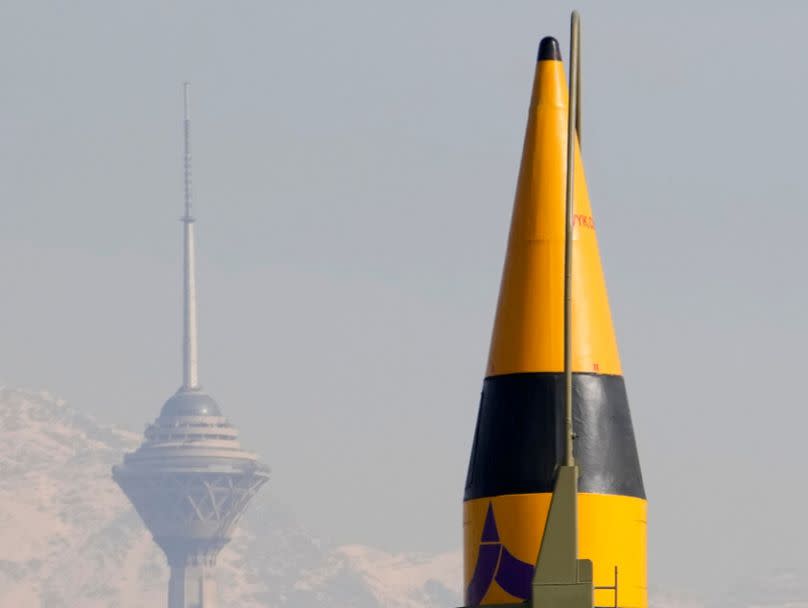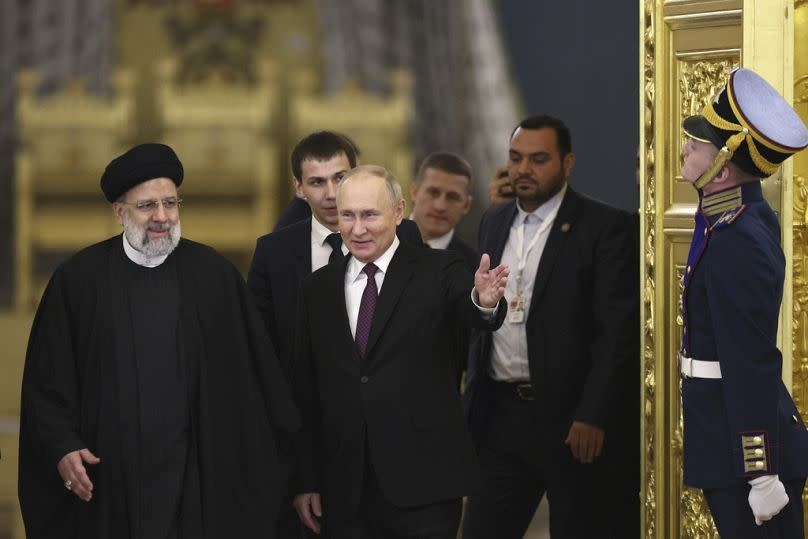G7 allies warn Iran not to provide Russia with ballistic missiles for use in Ukraine

- Oops!Something went wrong.Please try again later.
Members of the G7 alliance have warned Iran it will be hit with significant new Western sanctions if it moves forward with a plan to provide ballistic missiles to Russia for use in the war in Ukraine.
The Biden administration has raised alarms for months that Russia is seeking close-range ballistic missiles from Iran as Moscow struggles to replenish its dwindling supplies.
The US has yet to confirm that missiles have moved from Iran to Russia, but Washington is alarmed by comments from Iranian officials suggesting a deal is imminent.

"Were Iran to proceed with providing ballistic missiles or related technology to Russia, we are prepared to respond swiftly and in a coordinated manner including with new and significant measures against Iran," the G7 leaders said in a statement.
Iran's UN Mission said last month there are no legal restrictions to prevent it from making ballistic missile sales, but the Iranian government is "morally obligated to refrain from weapon transactions during the Russia-Ukraine conflict to prevent fuelling the war."
Tightening up
The Biden administration in January said US intelligence officials had determined a Russian-Iran deal had not been completed.
They were concerned that Russia's negotiations to acquire missiles from Iran were actively advancing, however.
In September, according to the White House, Iran hosted Russian Defence Minister Sergei Shoigu to show off a range of ballistic missile systems, raising US concerns about a looming deal.
The US and other countries have taken steps aimed at thwarting the supply, sale or transfer involving Iran and ballistic missile-related items, including issuing guidance to private companies about Iranian missile procurement practices to make sure they are not inadvertently supporting Iran's development efforts.

"We've sent very clear messages to Iran not to do it, this is a subject of considerable conversation among a number of countries," Secretary of State Antony Blinken said during a news conference on Friday in Vienna.
The Biden administration has repeatedly sought to make the case that the Kremlin has become reliant on Iran and North Korea for the arms it needs to fight its war against Ukraine. It has disclosed intelligence findings that it says prove this.
Russia has acquired and used North Korean ballistic missiles against Ukraine, but Ukraine claims the weapons have frequently missed their targets when deployed.
Russia has received hundreds of one-way attack drones, as well as drone production-related equipment, from Iran, according to the White House.
Tehran has been accused by Washington of providing Russia with materials to build a drone manufacturing plant east of Moscow.
Iran initially denied supplying drones to Russia, and only acknowledged providing a small number before Moscow launched its invasion of Ukraine.

